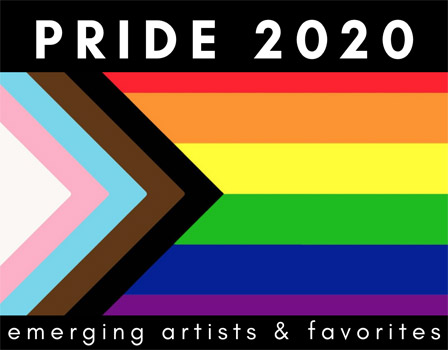IF YOU’RE LOOKING FOR TWITTER DRAMA, THIS IS THE WRONG POST ABOUT NONAME’S “SONG 33”
If you live under a rock and didn’t hear about the J. Cole-Noname situation, I will give you the briefest possible summary because THAT IS NOT THE POINT THAT WE SHOULD BE FOCUSSING ON RIGHT NOW.
Noname tweeted about being disappointed in her fellow artists for staying silent amidst the movement against systemic racism. Shortly after, J. Cole (who had previously been pretty quiet) released “Snow On Tha Bluff,” and it received mixed reviews. While the song touched on systemic racism in the US, it also criticized an outspoken woman who the people have assumed to be Noname. In response, Noname released “Song 33,” but later tweeted that she didn’t feel she handled the situation well, and offered to donate a portion of the song’s earnings. J. Cole expressed his appreciation for Noname’s wisdom and said that he sees her as a leader. Drama over. Let’s talk about the song and the actual issues.
i’ve been thinking a lot about it and i am not proud of myself for responding with song 33. i tried to use it as a moment to draw attention back to the issues i care about but i didn’t have to respond. my ego got the best of me. i apologize for any further distraction this caused
— Noname (@noname) June 21, 2020
Historically, many hip hop songs have offered a means of education, spreading awareness about political issues, and social commentary. Chicago based Noname has embodied that spirit throughout her career, making her an indie hip hop artist who people turn to and see as a leader. “Song 33” is raw, emotional, and full of things that people looking to learn about systemic racism should look up. It also features a stellar beat by Madlib. Anyway, I’ve broken it down to help you get started. These are my opinions and I’ve included sources. These issues can be difficult and emotional to talk about, so please be warned and do what you need to do to take care of yourself.
NONAME - “SONG 33”
The Line: “One girl missing, another one go missing”
The Issue: According to The National Center for Missing and Exploited Children, there are an estimated 64,000 to 75,000 missing Black women and girls in the United States and an insane lack of coverage. This is due to an intersection of problematic power dynamics regarding race, gender, and socioeconomic status. This culmination leading up to a general lack of concern for Black women and girls can be referred to as misogynoir. Coined by Moya Bailey, misogynoir has helped to name a type of misogyny experienced by Black women. So what can we do to help?
1. Social media: Oluwatoyin Salau tweeted about being sexually assaulted right before she went missing. Put pressure on authorities to find missing girls and check in with others. Share information with your friends and use your platforms to teach others how to help.
2. Petitions: Women like Tete Gulley deserve more than having their deaths being swept under the rug due to “lack of public interest.” This petition has shown that to be false. The public is very interested. We want answers and want to know that Black trans women are being kept safe, too.
3. Donate: Organizations like Peas in Their Pods and Black Women’s Blueprint can’t fight this battle alone. An easy way to support is by making a donation and sharing so that others can donate, too.
The Line: “When it’s people in trees”
The Issue: In about a month’s time, 6 Black people have been found dead, hanging from trees. All of the deaths have been deemed suicides. During the time following the Civil War, many lynching deaths were deemed suicides in order to protect police officers and white mobs. Given this historical context, people are skeptical. Meanwhile, Rand Paul has held up a bill that would make lynching a federal hate crime.
The Line: “When George was begging for his mother, saying he couldn’t breathe”
The Issue: On May 25th, 46 year old George Floyd was killed by Minneapolis police while being arrested for allegedly using a counterfeit bill at a store. The disturbing video of his murder circulated online and sparked outrage worldwide.
The Line: “Distracting from the convo with organizers”
The Issue: Noname brings up a great point about how staying silent can be really harmful and criticizes performative activism. We shouldn’t speak up because our egos are hurt or because it’s the “trendy” thing to do, we should speak up because real people are suffering and dying. And we shouldn’t stop talking until real change is made. Additionally, these performative instances can distract from the conversations happening with those who are working to make a difference.
Another really interesting and important point brought up from the song, situation, and Noname’s later apology is this: It’s ok to be wrong. It’s ok to apologize. It’s okay to change your mind. I think that so many people are afraid to find out what they don’t know, afraid to face how they’ve contributed to the problem, and afraid to be wrong. Looking in the mirror can be hard, but it’s absolutely necessary. Listen to “Song 33,” not because it disses J. Cole, but because it discusses the larger, systemic issues that Black people face daily and a portion of the songs’s proceeds will go directly to help fight those issues.
Arielle Tindel is from Cleveland, Ohio. She recently graduated from Berklee College of Music with degrees in Music Business Marketing and Songwriting. In her free time, Arielle can be found gardening or playing bass.



